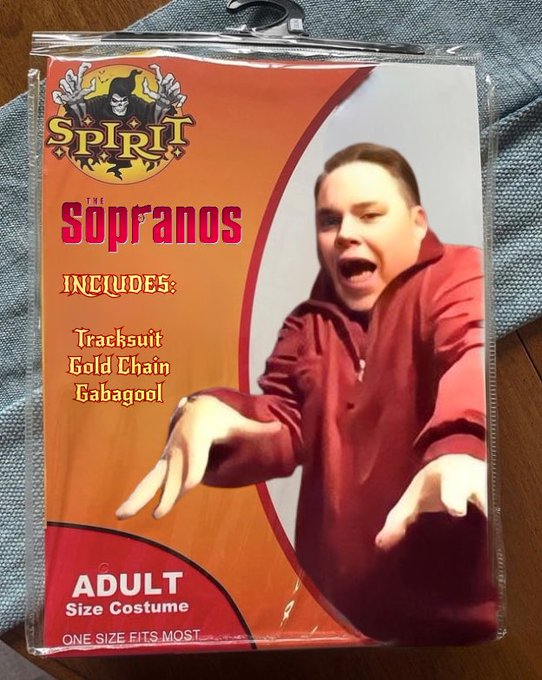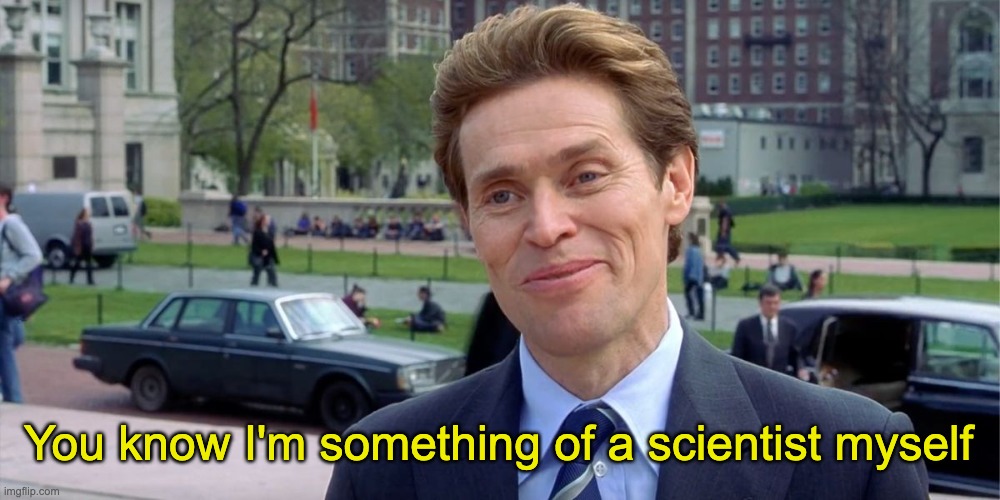In my last post, I mentioned the #1 reason I’m starting a blog this year is because I think my life is cool. And one of the coolest things I get to do in this lifetime is my PhD project on internet memes. But, how did I get to this point? How does one become an “internet meme scientist?
- I grew up in the right generation
- I studied the right subject
- I went to the right schools
- I had the right support
- I had the right mindset
1. I grew up in the right generation
It seems obvious but if you want to become a meme scientist, you have to know a lot about internet meme culture. I was lucky enough to be born in the late 90s. Google is actually 5 days older than me! So, I grew up along with the internet and the resulting behaviors that emerged from the introduction of personal computers. In the early to mid 2000s, when I was in middle school, I spent a lot of time on our family computer observing these seemingly random images and texts. They were mainly images of funny cats with an equally funny accompanying caption. These early memes were known as lolcats.

Then in the early 2010s, internet memes became more organized as more internet users started to generate more content. We began using stock-character image macros like “Bad Luck Brian” or “Advice Animals”. Making internet memes became easier and industrial as the images stayed the same and the text became the creative channel.


The mid to late 2010s introduced our modern sense of internet memes. Memes evolved out of their “hard-shelled” templates and became a more flexible vehicle of communication. These days, any image, video, GIF, or other source of media can become an internet meme if an internet users believes it can be. Users have the production means, the creativity, and the social cognition skills to infer whether a meme will make sense to a target group of people. If users are correct in their inference, they can make successful memes with the help of social media algorithms.

So, to become an internet meme scientist, you have to know the history of internet memes, how they evolved, and why users still create, share, and view internet memes.
Being born in the right generation to witness the rise and evolution of internet memes helps in becoming a meme scientist but it certainly is not essential. There are many scientists who work with internet memes that are not Gen Z!
2. I studied the right subject
To become a meme scientist, you have to know what kind of science you want to do. Internet memes have been studied from a variety of academic perspectives including media theory, political science, and linguistics. Internet meme research can be focused on the digital artifacts themselves, the society they are created in, or the people who create and consume them.
My meme research is in cognitive science. So, I study the effect of internet memes on psychological mechanisms like attention, judgment, and emotions. I read previous experiments, theories, and methods in psychology and apply them to new experimental designs using internet memes. So far, I have conducted research using theories from aesthetic psychology. I will describe why and how I apply aesthetic psychology to internet memes in a later blog post.
If you want to become a meme scientist, you have to find a relevant scientific perspective to investigate internet memes. Luckily, there are many to choose from. So, pick a field you are the most interested in and find a way to explore internet meme culture with it.
3. I went to the right schools
Once you picked an academic field, you have to go to the right schools that will best enrich your understanding of the subjects. Going to the “right” school is not the same as going to the “best” school. There are endless rankings that can give you their opinions on what the “best” schools are for this and that. But, this will not necessarily tell you which is the “right” school for you.
When I was picking a university to do my undergraduate education in, I was disappointed I didn’t get into the big name schools like Stanford or UC Berkeley (I didn’t even get into UC Davis). But, this didn’t matter. Because I got into UC Santa Cruz and it was the right school for me. Studying at UC Santa Cruz gave me the foundation for cognitive science, research experience in psychology labs, and most importantly the opportunity to study abroad (not to mention a diverse student body, a beautiful campus, and a wonderful social life).

Because of the experiences I gained at UCSC, I won a scholarship to do a PhD in Lucca, Italy. Now, I work at a small, relatively unknown, Italian graduate school called IMT Lucca. Sometimes I wonder if I should have stayed in the USA and applied to a bigger university like Brown or UC San Diego (usually these thoughts come in the winter months). But then, spring rolls around and it becomes breathtakingly beautiful in Tuscany. So I finish my work early, go for a walk around the walls, grab a spritz with my friends, and realize there is nowhere else in the world I’d rather be.

Picking the right school for you is an essential part of becoming an internet meme scientist. Make sure to pick a place that will challenge you in your studies, research, and personhood. That way, you will grow along with your research.
4. I had the right support
Once you find the right field and the right school, it is crucial to find the right support network.
During my early years of college, I focused on going to class, taking notes, and passing my exams. When I added philosophy as a second major, I started taking classes by a super cool professor: Nico Orlandi. At first it was a large “Introduction to Logic” class but then I begged to join their “Philosophy of Mind” class which was a smaller and more focused course. In this class, I was able to demonstrate my reading, writing, and reasoning skills about a topic I was passionate about. By being myself in their class, I accidentally built a relationship with Professor Orlandi.
So, when I came back from studying abroad in 2019, I met with Professor Orlandi to discuss what I had been up to. We talked about living in Europe, studying philosophy, and the term paper I wrote about internet memes for my philosophy of language class. Professor Orlandi encouraged me to write a full senior thesis on the topic and agreed to supervise the project. When I finished the thesis, they encouraged me to submit it for a departmental award. The thesis ended up winning both the departmental award and a university-wide research award.
Without this push to write my thesis, I would not have imagined internet meme research was possible. Without the push to submit it for the awards, I would not have imagined internet meme research was valuable.
It’s important to have advisors who see the potential and value in you and your research. But not all relationships will happen accidentally. You have to be proactive in searching for and building your support network. If you’re brave enough to cold-email professors or go to office hours (I was never able to) that’s a great approach.
To join my psychology research lab, I cold-emailed a graduate student who I thought was doing interesting research. We met for coffee and she encouraged me to email the Principal Investigator/ my perception professor Nicolas Davidenko. Professor Davidenko ended up being one of the best advisors I continue to rely on in my research today. So, don’t forget you need others to help you get to where you want to go and people are more approachable than they seem.
5. I have the right mindset
Let me be frank..
…being an internet meme scientist is hard. It doesn’t matter if you were born in the right generation, studied the right thing, went to the right school, and found the right support. Being a scientist and working in academia is challenging. Whether it’s studying for a difficult exam at the university level, finding the right supervisor and lab at the PhD level, or thinking about the abyss of possibilities in and outside academia, there are going to be obstacles along the way.
The biggest challenge I’m facing on my level is the loneliness of expertise. Since I started my meme research, I have been alone with the depth of knowledge I have about meme culture and behaviors. In a way, this is a great thing because I can leverage my expertise (hopefully). But on the other hand, I feel alone on my journey.
This is the life of a scientist. This is the life of an expert. So be prepared to deal with the depth of emotions that comes with being a pioneer in a field where everyone else is following someone else.
I am an internet meme scientist and…
- …I still have “what if” thoughts.
- …I still feel imposter syndrome.
- … I feel like everything I do is complete bullshit.
But I keep going. And to be a meme scientist you HAVE TO keep going! Because you are creating something completely new, it’s going to take time for others to see the vision. It sucks to be alone but with the right mindset, you can make it and create something wonderful. And one day (I really hope), the vision will become clear to others as clear as it’s been for you. And you will officially be known as an internet meme scientist!
